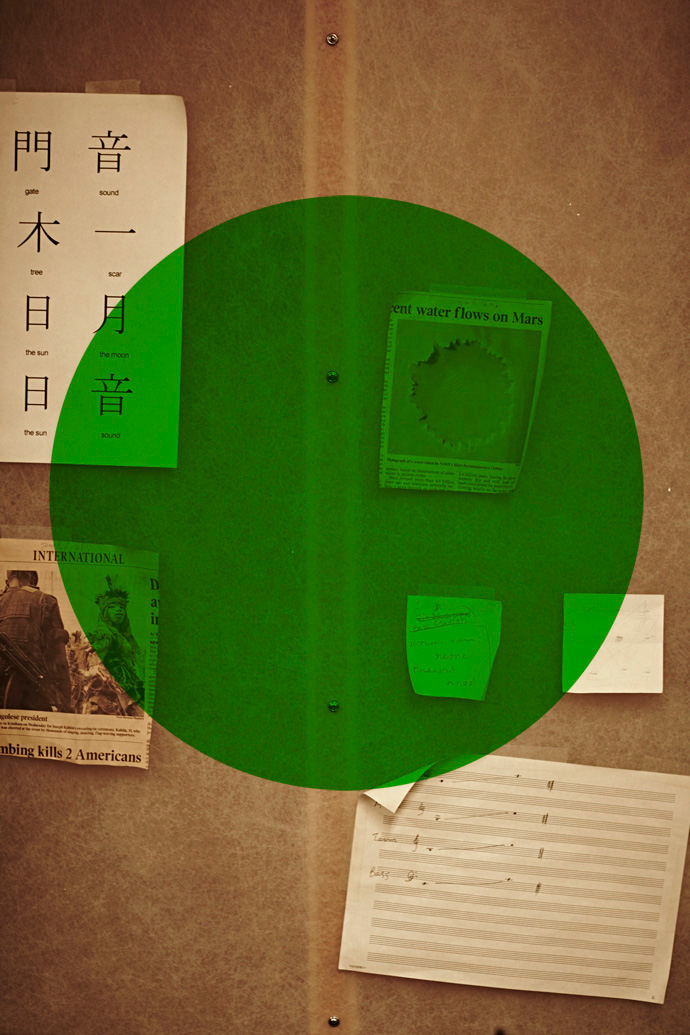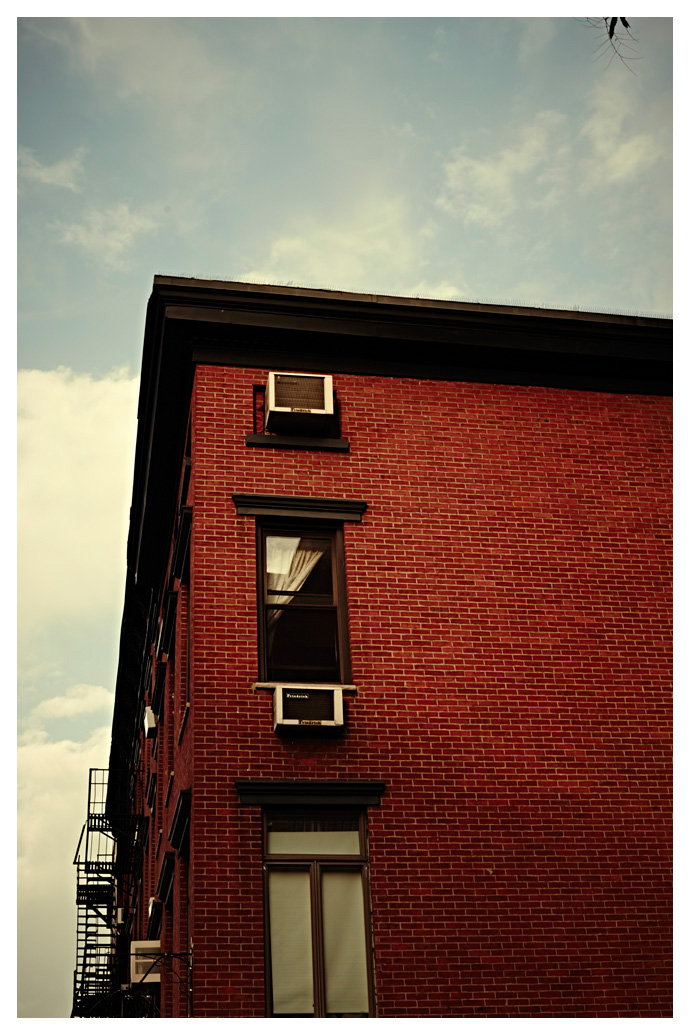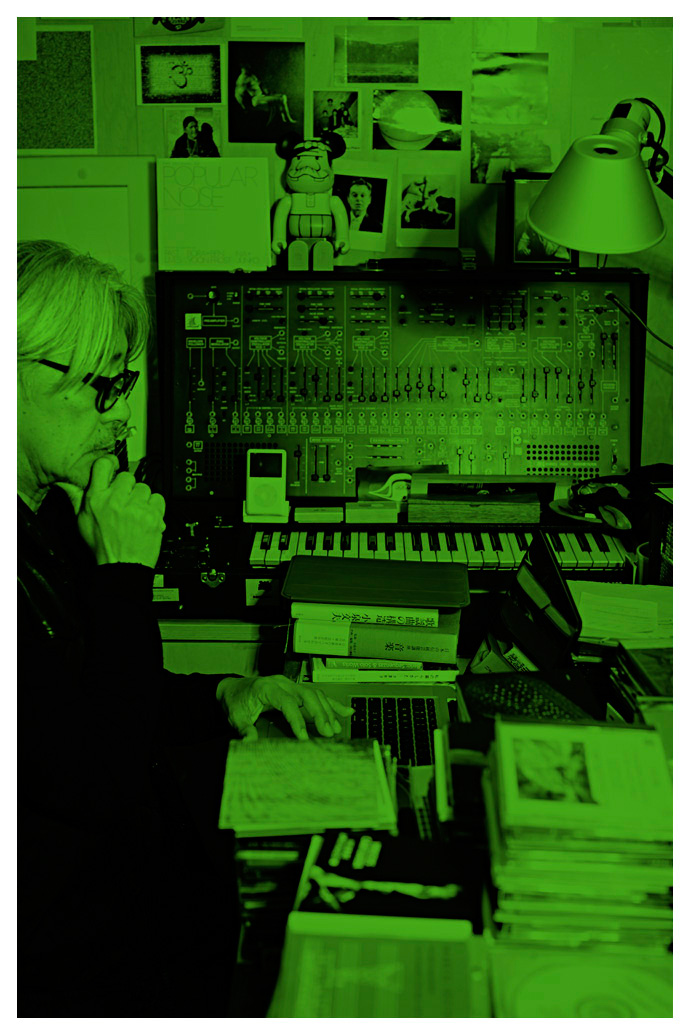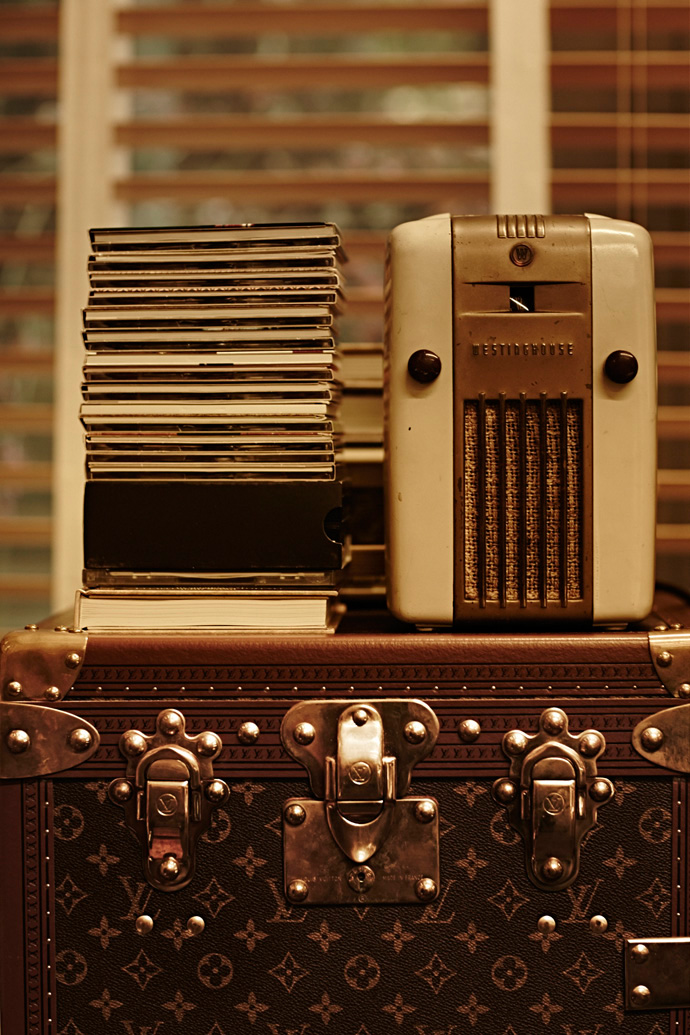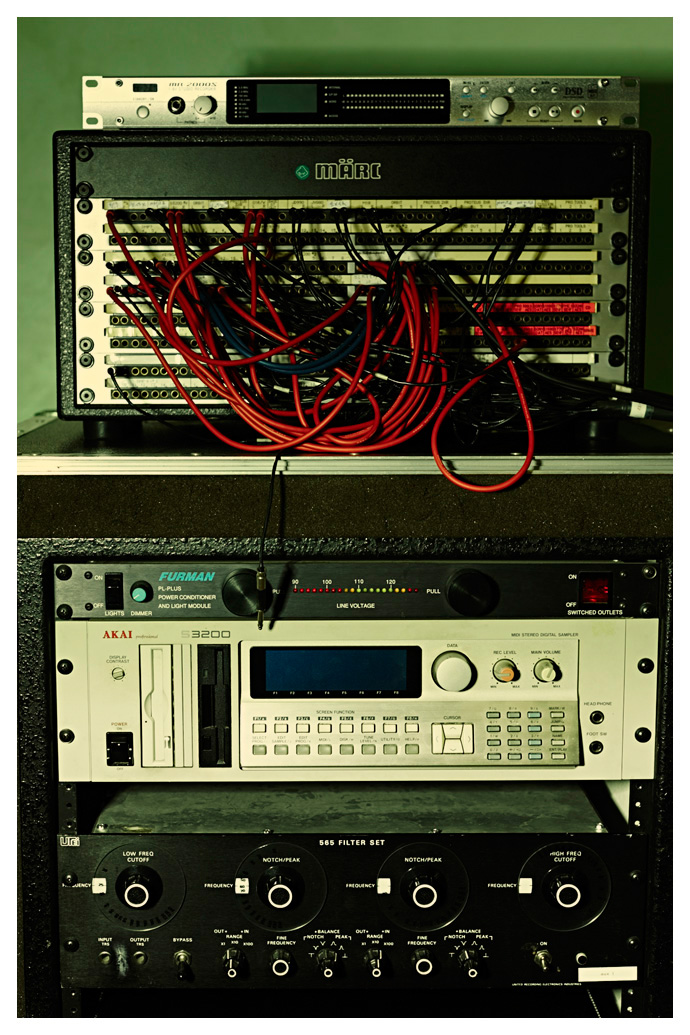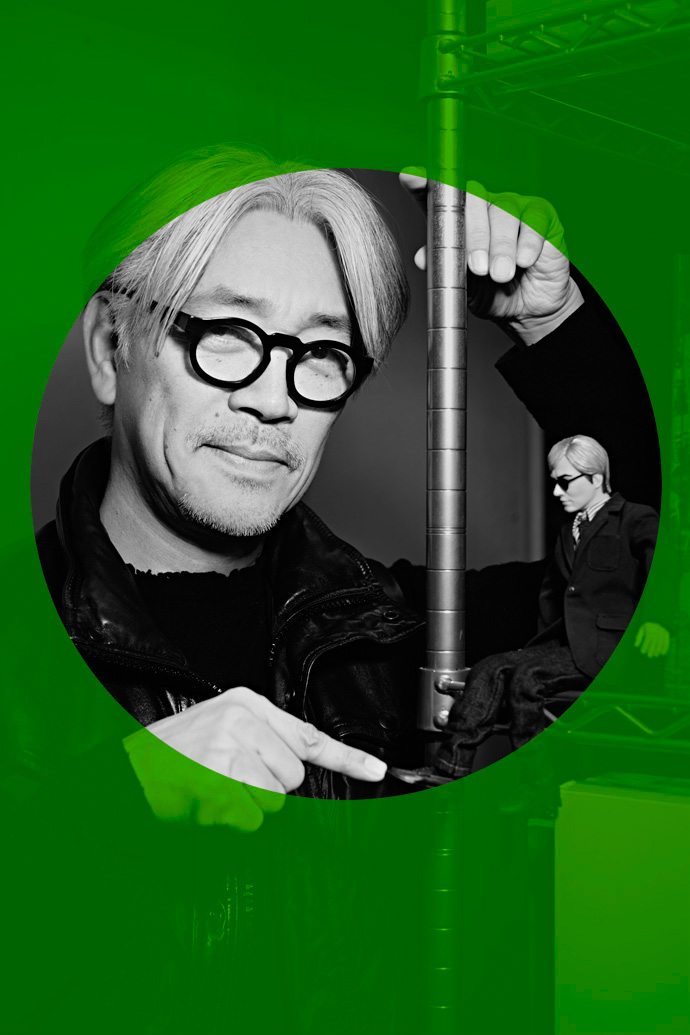Merry Xmas, Mister Sakamoto.
Manuscript to the score of "Furyo" by Ryuichi Sakamoto. Photography René Habermacher.
It doesn’t quite add up.
There are the many facets of Ryuichi Sakamoto, but putting them together, you still wouldn’t get a sense of who the man is.
He is both an icon of Japan’s 1980’s Bubble Era, and the one who moved beyond Japan and away from the spotlight, a consistent experimentalist and accidental sex-symbol.
Founding member of the influential band Yellow Magic Orchestra, Japan’s answer to Kraftwerk.
Musical innovator for over 30 years, mixing synthpop, Okinawan traditions, sampling, bossa nova….
Screen-mate of David Bowie in the cult film “Merry Christmas, Mr. Lawrence” / “Furyo.”
Film composer for Almodovar, Oshima, Bertolucci, Oliver Stone and Brian de Palma.
Collaborating with David Byrne, Brian Wilson, Youssou N’Dour and the Dalai Lama.
Appearing in Madonna’s “Rain” music video.
Sampled by Afrika Bambaataa…and Mariah Carey.
And last but not least, well before the Fukushima accident, a prominent activist in Japan’s anti-nuclear effort.
It doesn’t quite add up, and that’s really for the best, as we found out after spending an afternoon with him in New York City
Left: inspiration board. Right: Ryuichi Sakamoto. Photography by René Habermacher.
The Stimuleye: When did you first feel personally concerned with the nuclear issue?
Ryuchi Sakamoto: Probably I started feeling anxious about it around the time of Chernobyl. Then I encountered the facts about the nuclear reprocessing plant in the northern part of Japan called Rokkasho. It was 7 years ago, pretty recent.
It’s not a usual nuclear plant, it’s to re-use, re-process used radioactive wastes. Through the processing, you emit hundreds of time more radioactive materials than the usual nuclear plant does. You get 365 nuclear plants in 1 village. Very dangerous.
So I started a web campaign, called Stop Rokkasho, I asked Kraftwerk to give us a sound logo, and they did actually ! The pretty famous graphic designer Jonathan Barnbrook had his assistant design the webpage, which was very neat.
As a web campaign it succeeded, my friends – photographers, musicians, stylists, creative people got to know about this plant. We decided to make a Stop Rokkasho tshirt, we asked more than 50 designers to make a tshirt. They needed phrases, so I gave them “No Nukes. More Trees.”
Everybody loved it, especially the second line.
It’s very easy to understand, and no one can resist.
So, I decided to form a company called “More Trees”, it’s been 6 years, and we’ve been doing mainly conservation of Japanese forests. We have now 11 forests in Japan and 1 in Philippines.
TS: Last time I went to Japan, I was very lucky because after the shoot we went to Nara, to the forest sanctuary. The idea that the temple was not the temple itself but the forest behind the door, because people are worshipping the forest and the trees…
RS: Yes because the worship of mountains was probably the oldest tradition of Japan. So still now there are still gods on mountains, mountains are gods. In Japanese mythology, some gods are really wild. They break things, houses, they even betray their higher gods. Very human, like in the Greek mythology.
TS: Was Rokkasho your first political implication?
RS: The first activity of mine was probably in 2000, when famous musicians like Bono were doing the Jubilee to drop the debt on poorest 40 countries, mainly African countries. So I was asked to do the same thing, in Japan, and I did.
When the Iraq war started, I did chain music on my website – like a chain letter – I posted a very small piece of music, then I invited other musicians to continue the music, the result was an hour and half of music with 50 musicians involved.
Down "memory lane" at Ryuichi's studio in the West Village. Photography by René Habermacher
TS: What do you think is the role of the musician in politics, in general? Where is its place, and where should it not go?
RS: My position is that, activism is social and political, but I don’t want to deal with any existing political parties. I don’t want to support politicians – that’s the limit. There will be some results, what we do is influencing political parties, that’s ok because it’s not direct.
TS: And what has been the reaction in Japan to your campaign?
RS: Obviously, before the Fukushima accident in 2011, the majority of Japanese people were allergic to discussing the nuclear issue. That’s why the Stop Rokkasho campaign was targeted to creative people, not the mainstream people. I recognized there’s a big gap, a divide, between people who access to the internet every minute every day and those who don’t, and there’s a big gap, in terms of sharing of information.
It’s interesting that Japanese teenage girls, they all have a smartphone, “Smaphone” in Japanese, but don’t really access the internet.
Also I saw a few months ago, 70% of Japanese people believe mass media, in contrast of 40% of French people who believe mass media, so it’s a big difference. For the people in power, it’s much easier to control the Japanese people than the French people !
We thought for 2 years after the accident that Japanese society would change, until the big elections of December last year.
Some believed that the pro-nuclears were a “nuclear village,” but it’s not a village, but an empire. All the big businesses, the banks, huge companies, everybody is part of this empire, so it’s very rigid. Of course we knew it’d be hard to break it down…
Still, it became free-er than before to discuss it, and it’s encouraging that former Prime Minister Koizumi is talking about “zero nuclear”. Anyone can change their mind, anytime, it’s not too late !
[NB: This interview took place shortly before Japan’s national security law was introduced and passed]
Ryuichi at work in the studio. Photography René Habermacher
TS: You’ve lived through the “bubble years” and now there is a generation which has lived through “crisis” years, how do you see that?
RS: There is a slow change occurring since the turn of the century. Less and less young people will buy cars, that’s a big change as cars were a symbol of progress, prosperity, and the American empire. Since 1945 every Japanese want to have a car and a big refrigerator.
Before, Japanese people would work for a company that would own them, which is strange, like feudalism. Then in the last 10 years they started to think they worked for their own life, pleasure, joy. It’s new for the Japanese people.
I think there’s a big divide in the young generation.
There’s a very conservative, a bit nationalistic, pro-nuclear part.
There’s another part, less about social climbing, more about co-existing with nature.
TS: Do you think there’s a denial in Japan of what is happening in Fukushima?
RS: Definitely there’s a before and after the accident. The majority of Japanese people don’t want to speak about it.
But I was surprised to find out that a lot of people already left Tokyo or Kanto area ! To the West, to Okinawa, Kyushu… A lot of people started to live in Okinawa and they don’t speak up ! Of course I understand their concerns, younger couples, designers, musicians, not employees of big companies, as salarymen cannot move, and in this economic situation it’s difficult.
TS: It feels like Japanese culture starting in the 70’s had an international impact, through the 90’s, but in the last 10 years not so much. Is it because people are looking at Korea?
RS: I think people are always interest in newcomers, me included. Thailand definitely. Conflict between modernity and tradition creates interesting things. I myself feel the Korean culture and music is so energetic. Korean movies are amazing, I’m a huge fan of Kim Ki Duk.
Ryuichi Sakamoto by René Habermacher.
TS: Your former screen-mate David Bowie just did a campaign for Louis Vuitton, is this something you would do?
RS: t depends on how or what I think I would be cool. So yeah, it’s possible.
Actually one of More Trees’ forests is incorporated Louis Vuitton. We had a party in the forest, we brought all the press people nowhere in the forest, with Louis Vuitton, so they served the champagne…
TS: You were involved in the development of techno music, which was important to nightlife. Do you think the nightclub still has an important place in society?
RS: I don’t know, you may know about the situation in clubs in Japan ? No Dance Society. Police comes to arrest you if you dance. Dance is not allowed. I’m a big Pina Bausch fan, and I’ve used Pina’s voice, saying “Dance ! Dance !” in my opera from 1999, so I really support dance culture, dance as art.
Ryuichi Sakamoto by René Habermacher.
TS: What’s the next project you are working on?
RS: I am not sure… I have many ! Since the end of last year, I’ve been doing a lot in art. I kind of curated a big exhibition, at MOT (Modern Art Museum of Tokyo) which opened in December last year. Then we went to Georgia, to show our installation and to perform with Carsten Nicolai.
And this year is the 10th anniversary of the media center in Yamaguchi, YCAM. This media center is very unique, there’s nothing like it in Japan, just a few in the world. It’s a museum with a lab, a staff of 20, they make hardware and software booths according to artists’ needs – it’s amazing. I am showing 3 different installations in YCAM.
I’ve also been appointed director for Sapporo International Arts Festival, next year from July to September. Please come to Sapporo, it’s a beautiful city, the food is excellent, and nice beer.
Obviously, I was a big fan of modern art in the 60’s, Nam June Paik was my hero. I always loved art but didn’t work in the art world for decades. Now i’m working with artists and curators which is totally new for me. I went to visit the Venice Art Biennale this year, it was very interesting.
TS: What is the last thing which stimulated you?
RS: Those curators and artists, much younger than I am, is very stimulating. But looking at my own work, it’s already been 4 years since my last album, so i’ve decided to make new album next year.
Do you know Paul Claudel ? A French poet and playwright. He was a politician too, the French ambassador to Japan before the war. He saw Nô theatre, he understood it very deeply and wrote essays, and it helped me to understand Nô !
It’s a totally new to me. I studied Japanese music as an ethnic music, next to Asian and African music. I was more interested in African or Balinese music than Japanese music, but now it interests me.
Ryuichi with his Andy Wahrol doll. Photography René Habermacher.
1 Comment
-
To Mr.Ryuichi Sakamoto,
Hello. I live in Sapporo. I’m preparing for the new year with my parents.
I was so frightend of the earthquake. At that time I was so scared with the TV news.
It was so terrible disaster that I feel sorry for the sufferers.I don’t like the nuclear reactor like the others. I wish the peace of the world.
I’m not so good but I continue to practice
to play the piano of the classical music.My old friend admire you so much.
